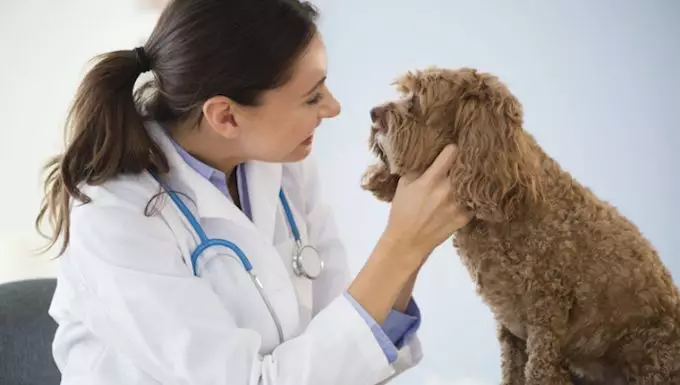Mouth cancer, also referred to as oral tumors, represents a serious health concern for canines, particularly in middle-aged and senior dogs. Characterized by the abnormal proliferation of cells within the oral cavity, this condition can significantly affect a dog’s quality of life. Often categorized under the term ameloblastoma, it has previously been identified as adamantinoma, and while the exact cause remains elusive, various risk factors have emerged in clinical discussions.
The symptoms of mouth cancer in dogs may not always be overt, which can complicate early detection. Common signs include difficulty in eating, excessive drooling, bad breath, and noticeable swelling of the mouth or face. Observant pet owners may also notice unusual growths within the mouth or changes in the dog’s behavior, such as reluctance to engage in play or reduced interaction with food. If any of these symptoms arise, it is crucial to consult a veterinarian swiftly for a more detailed evaluation.
While the precise origins of mouth cancer in dogs remain unknown and are typically classified as idiopathic, several potential risk factors have been identified. Genetic predispositions play a crucial role, particularly in certain breeds that appear more susceptible to developing oral tumors. Furthermore, exposure to carcinogenic substances such as tobacco smoke or certain chemicals can increase the risk. Viral infections are also being explored as possible contributors to the development of these tumors, marking the importance of understanding a dog’s environment and health history in addressing this condition.
When a dog presents symptoms suggestive of mouth cancer, the diagnostic journey typically begins with a thorough consultation with a veterinarian. The vet will inquire about the clinical signs, the dog’s medical history, and any specific breed-related issues. A comprehensive physical examination follows, often supplemented by blood and urine tests to assess overall health. Imaging techniques, such as X-rays or CT scans, may provide insights into the tumor’s extent and help formulating a treatment plan. Ultimately, a definitive diagnosis is typically achieved through a deep tissue biopsy, where a sample of tissue is analyzed in a laboratory.
The primary treatment modality for mouth cancer involves surgical excision of the tumor. This procedure requires a skilled veterinary surgeon, as success hinges on the surgeon’s ability to remove all malignant tissues while preserving as much surrounding healthy tissue as possible. In cases where the tumor is particularly aggressive or has metastasized, additional treatments like radiation therapy might be warranted. Post-operative care is crucial and usually necessitates a quiet recovery space for the dog, along with dietary adjustments to accommodate any changes in their oral health.
Recovery from mouth cancer surgery can vary, but it is essential to provide a calm, supportive environment for your pet. You may need to collaborate with your veterinarian to design a safe and nutritious diet tailored to your dog’s needs during this vulnerable period. Regular follow-ups are crucial to monitor progress and manage any complications. Being attentive to your dog’s needs and responsive to any changes will play a significant role in their overall recovery journey.
While mouth cancer poses a considerable challenge, early detection and responsive care can significantly impact treatment outcomes and enhance a dog’s quality of life. If you suspect your dog may be suffering from this condition, never hesitate to seek veterinary advice immediately.

